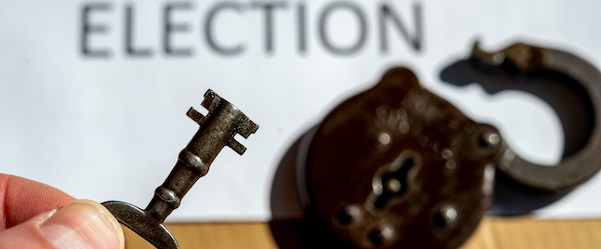
- Apple has introduced the HomePod Mini, a lower-cost smart speaker based on Siri.
- It uses a familiar design, just with less elaborate speakers.
- The HomePod Mini arrives on November 6 for $99.
The iPhone 12 isn’t the only focus of Apple’s “Hi, Speed” event. Apple has introduced the HomePod Mini, a smaller and decidedly more affordable smart speaker than the full-size HomePod from 2018.
The new model borrows familiar design traits, including the mesh fabric cover (in space gray and white) and a touch-sensitive screen on top for controlling volume and play/pause. However, it’s based around a much more compact design that sheds some of the audio prowess in the name of price.
You can expect familiar features, including stereo pairing if you have multiple HomePod Minis in the same room, multi-user recognition, and support for services like Apple Music, iHeartRadio, Radio.com, and TuneIn. Apple says Pandora and Amazon Prime Music support will arrive in the coming months.
Read more: The best smart speaker you can buy
The HomePod Mini has a few new features over the original HomePod. First, it’s powered by Apple’s S5 chip, which enables what Apple is calling “computational audio.” The HomePod Mini analyzes music even before it plays to apply tuning models to optimize volume and EQ.
The Mini speaker should sound good, too. Inside, it has a full-range dynamic driver, two passive radiators for high-quality bass, and an acoustic waveguide to deliver consistent 360-degree sound.
There’s also a new handoff experience for iPhone owners. Utilizing the new U1 UWB chip, the HomePod Mini can detect when your iPhone is nearby and display visual and haptic effects on the top screen. This feature is arriving later this year.

Apple is taking a page out of Google and Amazon’s books with the new intercom feature. This lets you send a message to other HomePod devices in your house. People in other rooms of the house can respond to your message if they’d like. Where Apple’s feature stands out is that it works with HomePods, iPhones, iPads, Apple Watches, AirPods, and CarPlay. That means you can send an intercom message from your CarPlay system in your driveway and family members near a HomePod should hear it.
Apple says no voice recording is sent out of your home to Apple’s servers until you activate Siri. Your requests are not associated with your Apple ID. Plus, you can choose whether or not Apple saves audio recordings.
HomePod Mini pre-orders begin November 6 for $99, and will ship the week of November 16. Really, that lower price is the key. Where the HomePod’s initial $349 price (eventually cut to $299) limited its appeal to high-end customers shopping for devices like the Google Home Max and Sonos Play 3, the Mini is aimed directly at people who would otherwise buy an Amazon Echo or Google’s Nest Audio.
It’s not certain if Apple’s HomePod Mini will succeed where its larger counterpart has struggled. It remains a tough sell for anyone who isn’t already invested in the Apple ecosystem, or prefers the flexibility of AI helpers like Alexa and Google Assistant. However, a more affordable design could easily expand the audience to people who otherwise wouldn’t have given the HomePod a second glance













